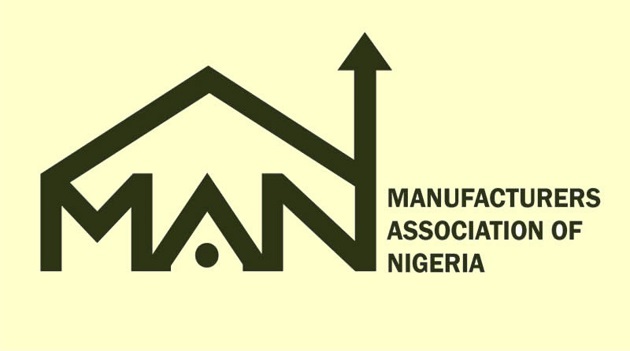News
Overlapping Regulations, Major Challenge for Manufacturing — CPPE

The Centre for the Promotion of Private Enterprise, (CPPE), has lamented the crippling effect of the overlapping regulatory policies of government on businesses, and called for the adoption of good regulatory governance principles to unlock the full capacity of businesses and industries.

Speaking on the theme, “Harmonising Regulatory Compliance: The impact of overlapping regulatory functions on business operations”, at Chief Executive Officer’s Breakfast Meeting of the Ikeja Branch of the Manufacturer Association of Nigeria (MAN), Dr. Muda Yusuf, the Director of the Centre for the Promotion of Private Enterprise, (CPPE), said the call was particularly important as this was not the best of time for manufacturers and investors in the country.
Yusuf said regulatory risk was one of the biggest risks that businesses had to cope with in the Nigerian economy.
This, he noted, could manifest as overlapping regulatory regimes with too many regulations, both sporadic and frequent regulatory changes and absence of dispute resolution mechanism between business and regulators have several cases of overlapping regulatory functions creating challenges for manufacturers, hence, the need for regulatory needs to be kept to the barest minimum.
He stressed that the regulators’ purpose and objectives should be clearly defined and communicated to the regulator, the regulated and the general public.
He said stakeholders should be able to predict with a high degree of confidence what decision a regulator is likely to make in a particular circumstance.
In his remarks, President of MAN, Francis Meshioye, said while regulations were essential for safety and quality, the overlapping and sometimes contradictory regulations increase operational costs and ultimately hinder business growth.
He noted that Nigeria’s regulatory landscape was characterised by a multitude of agencies with its own set of rules and requirements.
“These bottlenecks have adverse effects such as operational inefficiencies, increase compliance cost, delayed production and risk,” he said.
News
CSCS Inaugurates Custodian Portal to Enhance Digital Access, Operational Efficiency

Central Securities Clearing System Plc (CSCS), Nigeria’s capital market infrastructure provider, has launched its Custodian Portal, a user-centric digital solution designed to optimise custodian operations through intuitive, secure and efficient features.

Haruna Jalo-Waziri, Chief Executive Officer (CEO), CSCS, announced this in a statement on Monday.
The CSCS is a Public Limited Company with a diversified shareholder base, which serves as the Central Securities Depository for the Nigerian Capital Market.
It serves as the Central Depository for Equities, Commercial Papers, Corporate Bonds, Sub-National Bonds, certain Sovereign Bonds like the FGN Sukuk and the FGN Savings Bond, Equity-traded Funds, Real Estate Investment Trusts, Mutual funds and Commodities.
Jalo-Waziri said that the custodian portal offered a streamlined experience for market participants with powerful tools that facilitate comprehensive portfolio and trade management, document tracking, share transfer operations, client symbol search, and real-time access to vital data.
He explained that the portal, designed to operate through a flexible subscription-based model, empowered users to manage their records effortlessly and securely through convenient payment channels such as GTPay and Paystack.
According to him, “Digital transformation remains at the core of our strategy to enhance the efficiency, transparency and accessibility of Nigeria’s capital market services.
“The custodian portal is a significant leap in that direction, offering custodians a centralised platform to manage critical processes in real-time.
“We are excited about the value this innovation brings to our stakeholders, and we will continue to evolve the platform in line with users’ needs and industry trends.”
The CEO also explained that the portal was designed with user experience in mind with feature tools like portfolio viewing and downloads in PDF or Excel format.
He further said that it also featured tracking of stock movements across date ranges, inbox messaging and request tracking, as well as robust user management capabilities including role assignment and status tracking.
Similarly, the Divisional Head, Business Technology and Digital Innovation, CSCS Plc, Tobe Nnadozie, said that the portal aligned with CSCS’s drive to automate the market.
“In addition to the normal features, the platform is a part of an omnichannel platform for custodians, and includes API services.
“It also connects to the market-wide workflow, which CSCS has built to ensure secured communication and approvals across all major stakeholders in the market.
“The platform is well secured with best-of-breed cybersecurity solutions and our SOC,” he said.
The Custodian Portal reinforces CSCS’s commitment to leveraging technology to streamline back-office functions and support a more agile, data-driven capital market ecosystem.
All custodians in the Nigerian capital market have now been successfully on-boarded on the Custodian Portal, marking a significant milestone in CSCS’s ongoing drive to enhance collaboration, standardise operational processes, and promote digital adoption across the market.
News
UN Appoints Sa’id, Nigerian to Nuclear Panel

In a historic announcement, António Guterres, United Nations secretary-general has named Professor Rabia Sa’id, a Nigerian physicist, to a newly established global independent scientific panel tasked with assessing the devastating consequences of nuclear war.

Professor Rabia Sa’id,
This appointment positions Nigeria at the forefront of a critical international initiative focused on the future of global peace, health, and security.
The independent panel, comprising 21 world-renowned experts, was constituted following the adoption of General Assembly Resolution 79/238, titled “Nuclear War Effects and Scientific Research.”
The body will deliver the most comprehensive scientific analysis in decades on the potential physical and societal impacts of nuclear war at local, regional, and global levels, including climatic disruptions, environmental contamination, radiological effects, and socioeconomic fallout.
Professor Sa’id, a distinguished researcher in atmospheric and space-weather physics at Bayero University Kano and co-founder of Nigeria’s Association of Women Physicists, will bring unique African and Nigerian perspectives to the critical study.
Her expertise in atmospheric sciences is expected to play a pivotal role in the panel’s examination of post-nuclear climatic and environmental changes.
This marks a significant milestone for Nigeria, highlighting the country’s growing influence in global scientific diplomacy and peacebuilding initiatives.
Professor Sa’id joins a select group of experts from 21 countries spanning fields such as nuclear science, radiation studies, climate and environmental sciences, public health, agriculture, and economics.
The panel has been mandated to produce a comprehensive scientific report by 2027, to be presented at the United Nations General Assembly’s 82nd session.
Their findings will provide crucial guidance to the international community on the long-term risks posed by nuclear conflict, revisiting the issue almost four decades after the UN’s last major scientific report on the subject in 1988.
In keeping with the resolution, the panel was carefully constituted to ensure global geographical representation and gender balance. Professor Sa’id’s inclusion is a testament to Nigeria’s scientific excellence and commitment to global peace.
The Secretary-General underscored that the panel will consult widely with international organisations, civil society groups, and communities worldwide, ensuring local and regional concerns are adequately represented in the final report.
Nigeria’s Ministry of Foreign Affairs has welcomed the appointment, noting it as “an important recognition of Nigeria’s voice in shaping a safer, more secure world.”
Professor Sa’id herself expressed pride in representing her country, stating, “Africa must have a seat at the table when global security and human survival are discussed.”
Other prominent panel members include scientists from Brazil, Mexico, Argentina, the United Kingdom, South Korea, Kazakhstan, Austria, Australia, South Africa, Japan, Turkey, China, and others, reflecting a broad spectrum of expertise and perspectives.
As global tensions and nuclear risks resurface on the international agenda, Nigeria’s participation in this critical scientific endeavour underscores its continued advocacy for disarmament and a nuclear-free future.
News
GEFAS Launches Tech-Driven Hub to Mobilize Youth for Soludo’s Re-election

Geeks and Founders Alliance for Soludo (GEFAS) on Thursday 17th July, 2025 unveiled its new office space in a significant event that further strengthens the group’s mission to drive Governor Soludo’s “everything technology, technology everywhere” vision across Anambra State.

The unveiling was performed by the Secretary to the State Government, Prof. Solo Chukwulobelu, who could not contain his excitement and amazement at the level of sophistication of the facility and the vibrancy of the young professionals and tech enthusiasts behind the initiative.
Prof. Chukwulobelu commended the GEFAS team for building such a dynamic platform, uniting diverse sectors under a common goal to support Anambra’s digital transformation and Governor Soludo’s re-election bid at the November 8 Governorship Poll, without requesting a dime from the government.
He noted that their efforts reflect growing youth support for his administration.
“Our goal is to secure victory in the upcoming election and continue delivering good governance to the people of Anambra. Anambra is APGA, and APGA is Anambra
There is no vacancy in Government House come November 2025,” he added.
He urged GEFAS members to remain steadfast and resilient in the face of opposition, adding that the government would collaborate with and complement GEFAS to ensure its vision is further integrated into governance for greater impact.
Also present to lend credence to the movement was the Special Adviser to the Governor on Political Matters, Dr. Alex Obiogbolu, who described GEFAS as a strategic and dynamic angle to the campaigns.
He lauded the initiative, stating that it exemplifies the power of digital tools in modern political campaigning and governance, and expressed optimism that a second term for Governor Soludo would unlock even more innovative solutions for Ndi Anambra.
In her remarks, Ms. Odili Jombo, a coordinator with GEFAS, shared the impressive results of the Alliance’s outreach so far.
She revealed that the GEFAS Call Centre, with its team of 21 dedicated agents, has already reached over 20,000 Ndi Anambra, gathering valuable insights on citizens’ sentiments about Mr. Governor’s performance and their disposition towards the upcoming elections, an experience she described, has recorded more positives than negatives.
She further announced that GEFAS will soon unveil a mobile WiFi bus, among other top-tier initiatives designed to change the campaign landscape and further position Anambra as a leading tech state.
The event was well attended by top government officials, members of the media, tech stakeholders, and other well-meaning Ndi Anambra, many of whom expressed amazement at what GEFAS has created and pledged unwavering support for them and Governor Soludo’s continuity at the November polls.
Explaining the passion behind GEFAS, the Convener and MD/CEO of the Anambra State ICT Agency, Chukwuemeka Fred Agbata, CFA, described the Alliance as a continuity-driven force working to align with Governor Soludo’s vision of moving Anambra from a departure lounge to a destination lounge.
“We believe that together, leveraging technology, we can drive the real change Anambra truly deserves,” he said.
With this milestone, GEFAS remains committed to driving technology-driven engagement that delivers practical impact and amplifies the Solution Government’s transformational strides.

 General News2 days ago
General News2 days agoPrateek Suri CEO Maser Meets Zambia’s Education Minister to Propel Student Housing and Education Projects

 News1 day ago
News1 day agoUN Appoints Sa’id, Nigerian to Nuclear Panel

 E-Financial1 day ago
E-Financial1 day agoUBA’s LEO Becomes Africa’s First Chatbot to Enable Cross-Border Payments

 E-Business1 day ago
E-Business1 day agoNIMC Enrolls 122m for NIN, Cuts Extortion by 40 Percent

 Telecom1 day ago
Telecom1 day agoMTN Urges Nigerian to Regards Telecom Infrastructure as National Assets

 General News1 day ago
General News1 day agoAppeal Court Nullifies Registration of ‘KPMG Professional Services’

 E-Financial1 day ago
E-Financial1 day agoPolaris Bank Equips 500+ Journalists with Digital Tools for Modern Storytelling

 E-Financial1 day ago
E-Financial1 day agoSEC to Introduce USSD Codes to Fight Ponzi Schemes













